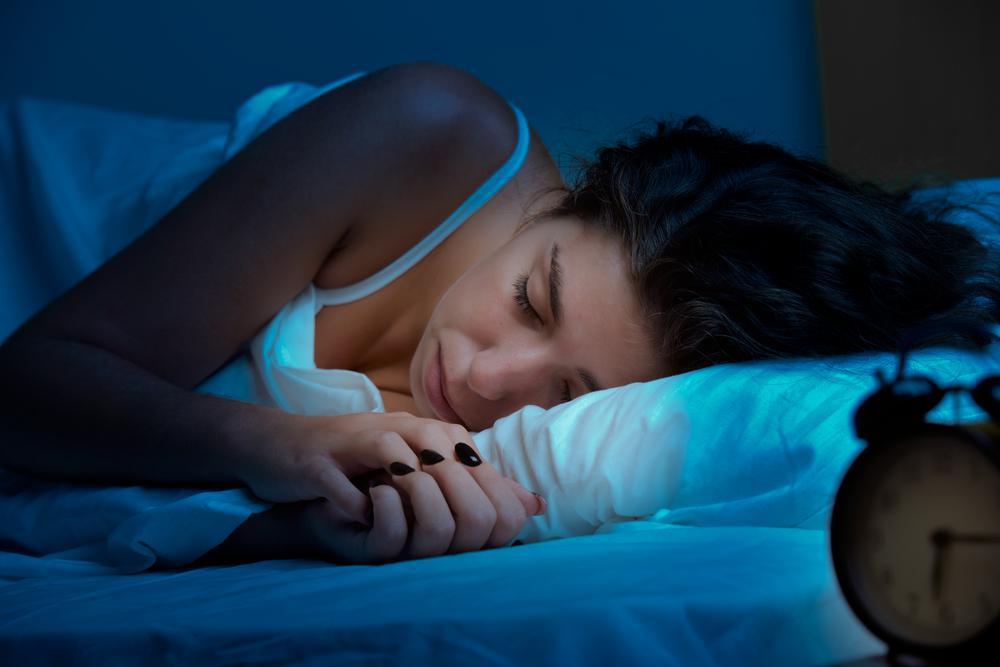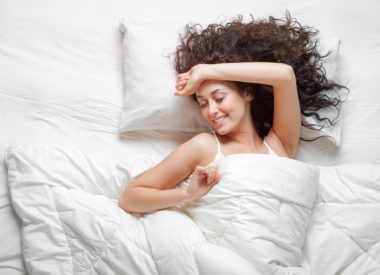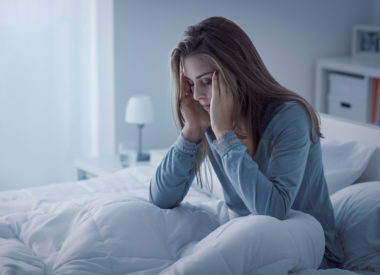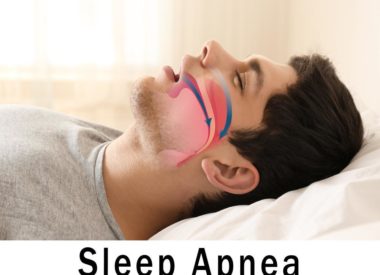Sleep better in 17 days with these best practices
New Year’s resolutions tend to favor quick change for permanent results, but by day 17… who is still sticking to their new plans? By day 17, most of us have abandoned ship.
Improving your sleep habits might be an easy resolution to achieve in just one period of two and a half weeks, with results that really could reshape your sleep health.
Here are some ideas for mindfully moving toward a healthier sleep practice so you can take on all the other highs and lows of the new year.
17 days to better sleep
Sample these complementary relaxation techniques for sleep
It could be an evening massage, new skills in yogic breathing, focused muscle relaxation, mild stretching, even aromatherapy that can make your entree into sleep every night something to look forward to, rather than to dread.
Keep a diary of what you did, how long it took for you to fall asleep, and how well you think you slept.
After two and a half weeks, look at any changes to see what practices worked better than others, and leave behind those that didn’t seem to make a difference. It can’t hurt to try these options, and you might find you really enjoy them for all the other benefits they proffer.
Also important: make sure your relaxation solutions are something you can achieve night after night. If you only have access to evening massage 1 or 2 nights a week, then that isn’t going to be something you can form a habit around.
Respect the bedtime ritual
What are the main self-care activities you normally perform at bedtime? For example, do you always wash your face, read to your children, floss your teeth, set up the coffee pot for the morning, clean your eyewear or contacts, tidy the kitchen, lay out your clothes for the morning?
Consciously list all the things that you normally do every night or would like to do every night (especially if you don’t always get to them every night), then add one sleep-focused goal that you find pleasurable, such as using a pillow spray or playing soft music.
Make sure you take care of all of these things as your evening ritual. Be disciplined about it. If you can do this, you will likely still be doing it by day 17, which means you will then have a bona fide bedtime ritual secured with a nice new sleep-enhancing practice included!
This might also be a good time to review and slowly eliminate previous bedtime rituals that don’t serve your sleeping habits, such as vaping, midnight snacks, use of marijuana, or evening nightcaps.
Take a look at your sleeping environment
Is it too light? Too noisy? What is the state of your bedding? How frequently are you washing sheets, airing out your room, or vacuuming? Is there a lot of clutter? Do you wish you had a different bedroom? Are you unable to sleep in your bedroom and have to sleep on the floor or a couch?
Spend time every day improving your sleep space in some small way, whether it’s investing in an eye mask to keep out intrusive light or washing sheets in lavender or removing an annoying clock. If your mattress or pillows are uncomfortable, replace them. If you lack a bedroom space, and sleep in another room, look at the comfort of that environment as well as its noise and light factors. Even couch or recliner sleepers can do things to improve their sleeping space.
If you need new sheets or bedding, keep in mind that January is usually full of great sales on these items.
You may even wish to move furniture around, add decorative items to turn the space into a sanctuary-like retreat, or change up the lighting.
By day 17, you will be much closer to having the bedroom you want, which can be such a pleasant way to start your year as well as end each day in 2017.
Poor sleep hygiene is a very common problem for many with sleep disturbances, but it is usually easy and (mostly) inexpensive to fix.
Bedtime stories for adults?
Yes, they have them. They are audiobooks you listen to with the aim of finding relaxation to fall asleep. They don’t have to be sleep-specific audiobooks, though. You can find a podcast that lulls you to sleep, or music that is composed to elicit relaxation patterns in brainwaves.
If you received a wireless headset that you can sleep with at night, this is a great use for it.
Now might also be the time to look for a post-holiday deal on sleep headphones (SleepPhones are pictured, left).
These lay flush against your head and ears and make it comfortable to sleep on your side while listening.
Promise yourself 17 nights of “bedtime stories for adults” and take note of how you responded to them. It might be so effective that you keep on listening your way to quality sleep far beyond day 17.
When well-intentioned efforts fail…
If, after two and a half weeks of earnest trials to sleep better, you are still struggling, don’t give up. You just might need some external guidance.
Schedule an appointment to get some help
We talk about this all the time on the blog here, but it’s worth repeating: if you feel like you have sleep problems that you can’t logically explain ( current illness, depression, too many late nights, medication use, stress), and these problems are persistent, please talk to your primary care physician about your options.
If it’s stress you’re experiencing, and you know this is directly affecting your sleep, seeking help for those challenges is also quite beneficial, whether they are focused on physical or mental health or on direct influences like economics or family stability. Cognitive behavioral therapy for insomnia (CBT-i) is one of the most effective means for managing sleeplessness related to anxiety and stress.
There are resources for every kind of human problem manageable; they are all available in a way that can be affordable to everyone regardless of income, by way of sliding scale fees and assistance programs, if cost is an issue.
If your concerns are medical, do not wait for a doctor to ask about your sleep health concerns. Sometimes primary care physicians overlook sleep health without realizing it, and if it’s the height of flu season, they
might be too focused on that to remember to ask about sleep. Bring it up first so they are required to address it, and don’t leave your clinic until you have some sort of action plan for addressing your sleep concerns. It is your right as a patient to ask for and receive the care you need.
You can also inquire into solutions for sleep problems that don’t require medication. Many people forego a trip to their doctor because they feel like they will just be given drugs and sent on their way. For sleep problems, there are many kinds of approaches to treating disordered sleep that do not use sleeping pills.
And yes!It is okay to request a sleep study. There are certain indications for a sleep study that doctors and insurance companies recognize. Your physician will often ask for your chief complaints and may even send you home with an easy and inexpensive home sleep apnea test (HSAT) to collect some preliminary data to confirm your need for a formal sleep study.
Note: Some studies test specifically for sleep apnea, while others are built to identify other kinds of disorders such as narcolepsy or restless legs. The test you will be given will be prescribed for your specific concerns and may not be the same test that a friend or relative has undergone.
In 2017, promise not let your sleep health worsen
Poor sleep worsens every other problem you may encounter, whether it’s mental, physical, job related, family related, or anything else.
Let’s adopt strategies to make better sleep a long-term goal in 2017. None of us can be fully functional human beings without it.



